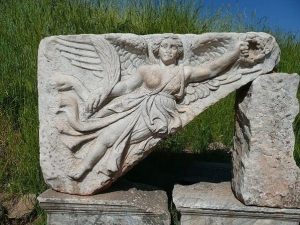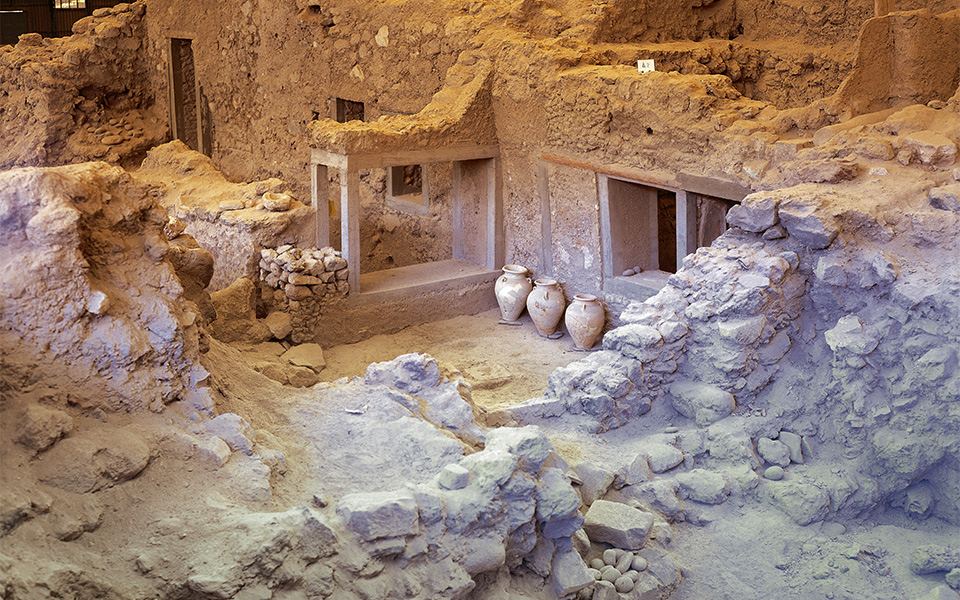 Modern magicians who follow the Abramelin system (or have read about it) mistakenly tend to equate the Holy Guardian Angel with their Higher Self or what the ancients called their Higher Genius. In doing so they make this Angel into something much more important than it is. That is not saying that it is not an important spirit, but it is not your real higher spiritual self. Another mistake associated with the Guardian Angel is that it is a Christian (or at least Jewish) concept.
Modern magicians who follow the Abramelin system (or have read about it) mistakenly tend to equate the Holy Guardian Angel with their Higher Self or what the ancients called their Higher Genius. In doing so they make this Angel into something much more important than it is. That is not saying that it is not an important spirit, but it is not your real higher spiritual self. Another mistake associated with the Guardian Angel is that it is a Christian (or at least Jewish) concept.
Ancient pagans used angels to fill a gap between Daemons or gods and matter. They acknowledged that daemons and gods were different operating on different levels; it was just that a spirit of the rarefied aether had no chance of influencing an object of dense matter. What was needed was a half-way spirit which could be the “messenger” of the God. The name of the angel was unimportant as it was the “hand of the god.” Ancient Alexandrian magicians sometimes borrowed Hebrew names for pagan Angels (which has in my view led to some confusion of the nature of some of the kabbalistic angels such as Uriel).
However, the concept of a guardian angel, or a spirit assigned to you at birth to protect you is connected to the idea of fate and destiny. If the guardian angel had a function, it was to ensure that you lived out your fate and did not suffer from any accidental death before your time. Knowledge and conversation with the Guardian Angel were largely unnecessary as you could see its activity through what was happening in your life. If you could speak to it, it would tell you that it had intervened to stop something happening which would have prevented an essential part of your story unfolding.
However, there were moves to develop the “theology” of Guardian angels. On the island of Santorini, graves had a circled cross and the first name of each person prefixed with the word “Angelos.” For centuries the graves were considered to be Christian, but the discovery that the first grave dated from the first century and the last was in the fifth seemed to suggest that they were a pagan cult. The circled cross once thought to be a Christian sign was more likely to be a stylised rosette which appears on many pagan tombs.
Understanding that the graves were pagan meant a few other assumptions. The reason that names and details were put on gravestones by pagans was so that people would read them out loud and give the dead person extra life. Other reasons to do so was to establish them as heroes in the underworld where they would lead a blessed life between human and divine. So a person reading the Santorini graves was declaring that the person was an Angel.
In his book Ancient Angels, Ragar Cline points out that there was an ancient belief that you were your guardian angel. In Acts 12, people surprised to see that Peter escaped from prison, mistake him for his Guardian Angel.
“The guardian angel could be seen as anything from the manifestation of the individual, to the point that the identity of the soul and guardian angel were merged, and in the case of Peter, the individual’s angel could be mistaken for the individual.”
This was not the higher genius because it was close to matter – an expression of the soul.
The question then remains as to why the people of Santorini wanted to be identified with their guardian angels after death.
Guardian angels had the roles of Psychopomps after death, which explains some of this, but gravestones were for long after this process had been completed. Placing the world Angelos on the tomb suggest that in some form the Guardian Angel guarded the dead body. We know of invocations in Melos and Thessaly where the Angelos called upon as a tomb guardian. If the guardian angel was part of the self which aligned a person to their destiny, it seems unfair to have the spirit guarding a physical tomb for eternity.
One answer to this could be the following scenario:
When a person incarnates the part of them, which keeps them on the mission of their destiny is angelic. By the time they die, they have fulfilled whatever fate the gods required and have become their angel. That destiny takes them to whatever part of the afterlife their story needs. However, the physical part of that angel (remember angels are supposed to operate at a physical level) remains attached to the dead body. This would explain why the ground around graves was considered sacred as it was full of the physical energy of what was left of the guardian angels.
Because guardian angels are so bound up with you and your fate, and you become it anyway, it is unlikely that knowledge and conversation is that necessary. Your spiritual path would be looking for your Higher Genuis.

Very interesting, so all those doing the Abramelin Operation, they are just striving for what they already have!
Pretty much… but most of magic is remembering what we already can do rather than gaining something new